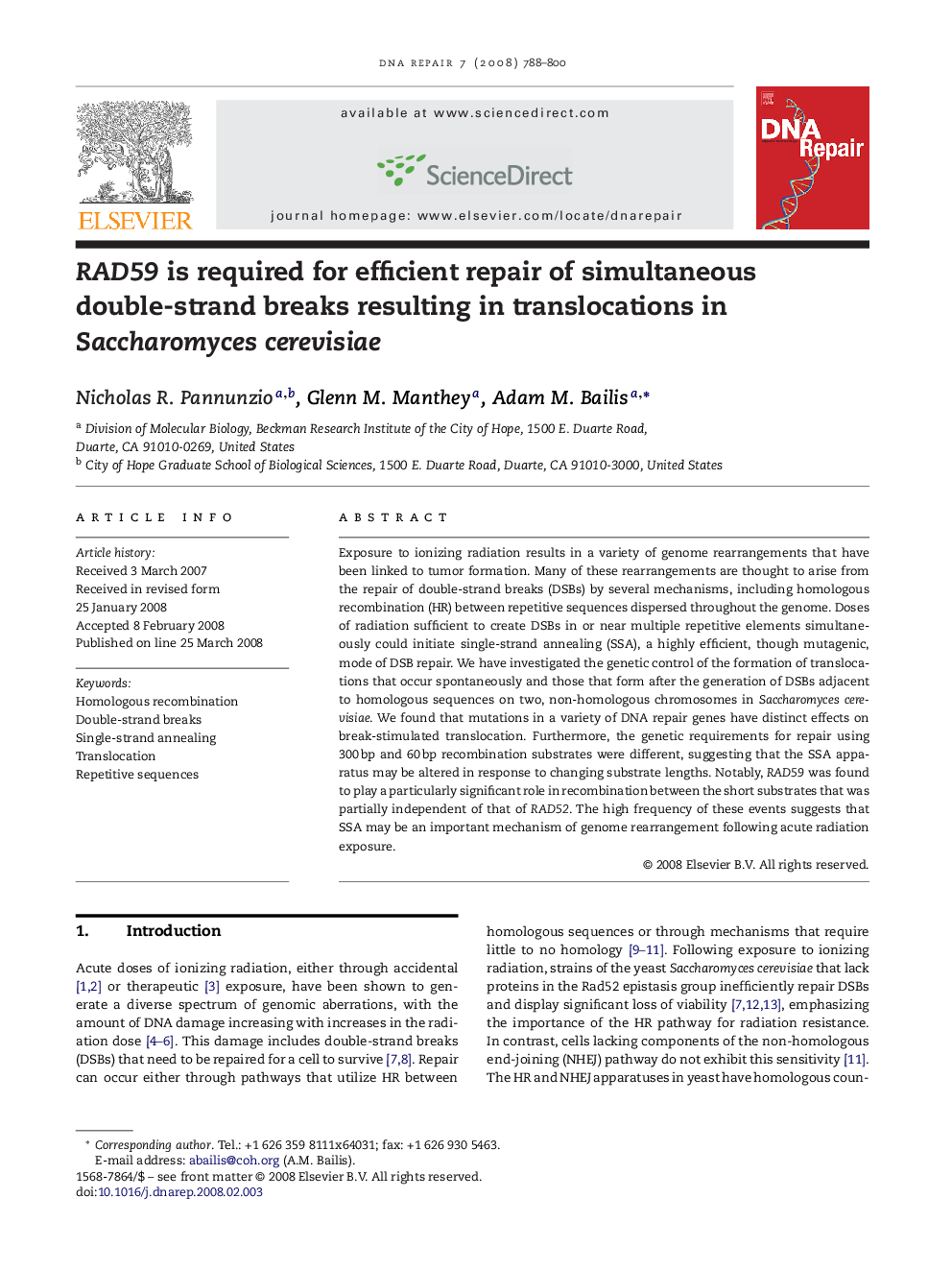| کد مقاله | کد نشریه | سال انتشار | مقاله انگلیسی | نسخه تمام متن |
|---|---|---|---|---|
| 1980779 | 1061880 | 2008 | 13 صفحه PDF | دانلود رایگان |

Exposure to ionizing radiation results in a variety of genome rearrangements that have been linked to tumor formation. Many of these rearrangements are thought to arise from the repair of double-strand breaks (DSBs) by several mechanisms, including homologous recombination (HR) between repetitive sequences dispersed throughout the genome. Doses of radiation sufficient to create DSBs in or near multiple repetitive elements simultaneously could initiate single-strand annealing (SSA), a highly efficient, though mutagenic, mode of DSB repair. We have investigated the genetic control of the formation of translocations that occur spontaneously and those that form after the generation of DSBs adjacent to homologous sequences on two, non-homologous chromosomes in Saccharomyces cerevisiae. We found that mutations in a variety of DNA repair genes have distinct effects on break-stimulated translocation. Furthermore, the genetic requirements for repair using 300 bp and 60 bp recombination substrates were different, suggesting that the SSA apparatus may be altered in response to changing substrate lengths. Notably, RAD59 was found to play a particularly significant role in recombination between the short substrates that was partially independent of that of RAD52. The high frequency of these events suggests that SSA may be an important mechanism of genome rearrangement following acute radiation exposure.
Journal: DNA Repair - Volume 7, Issue 5, 3 May 2008, Pages 788–800